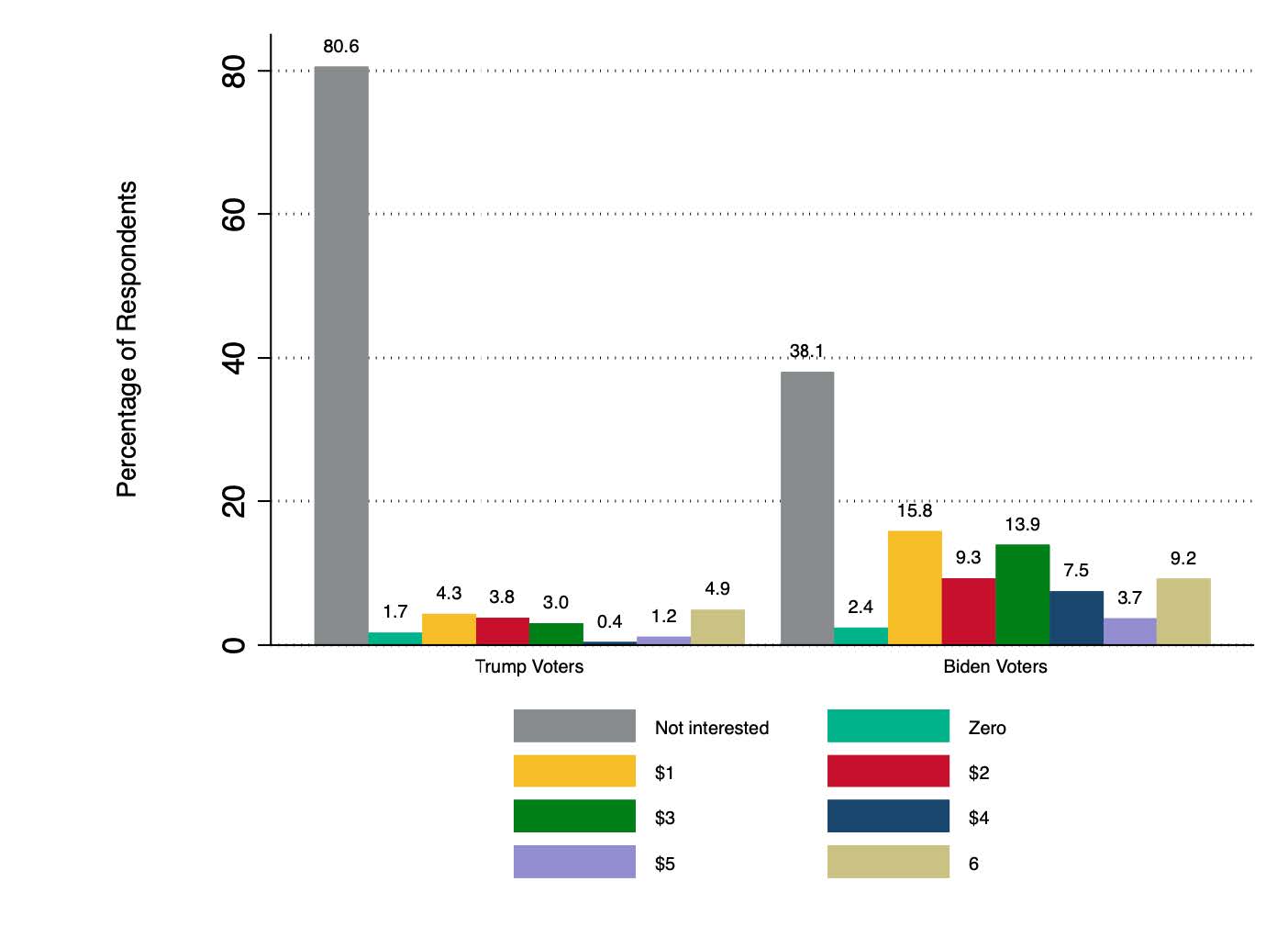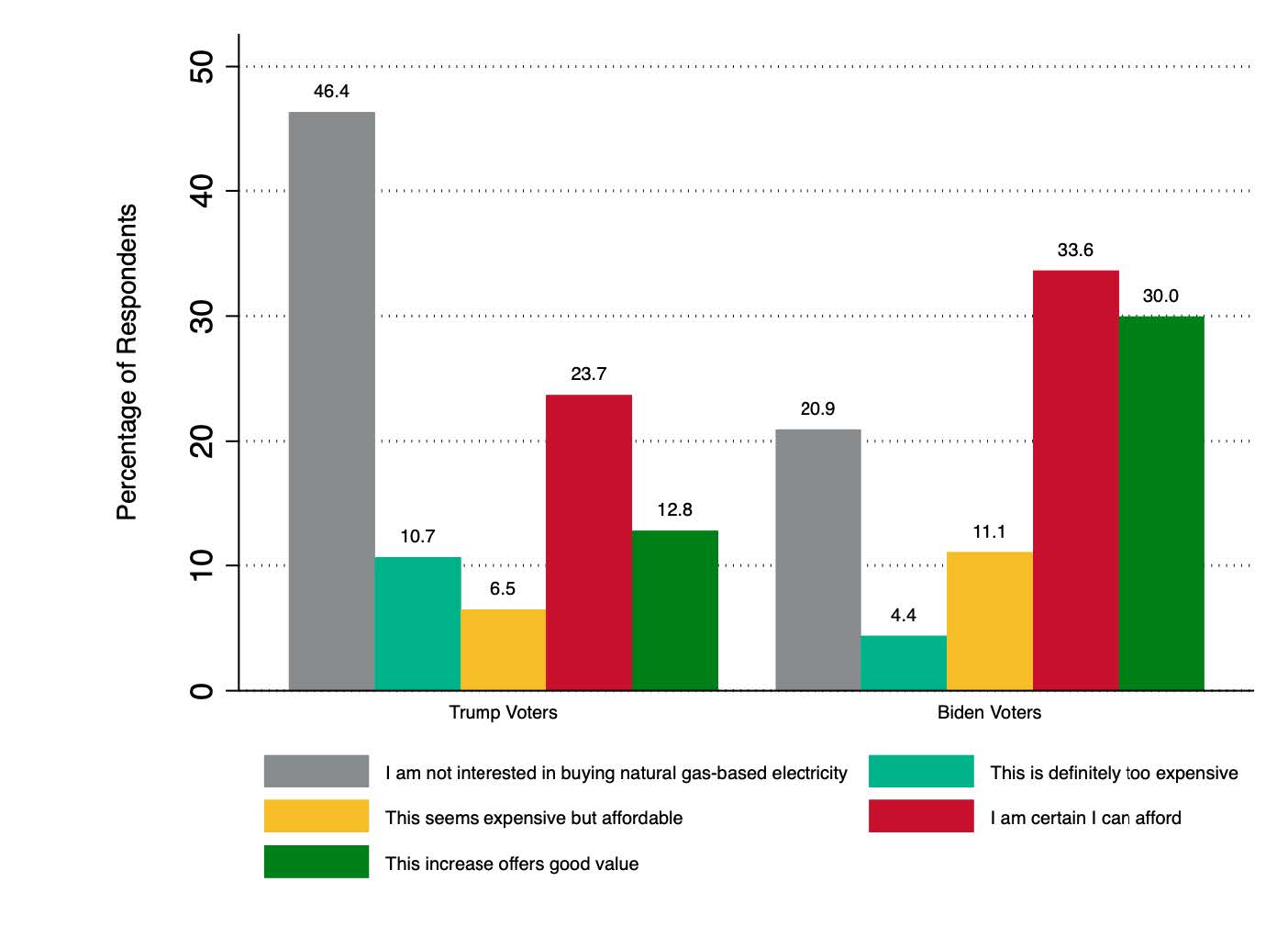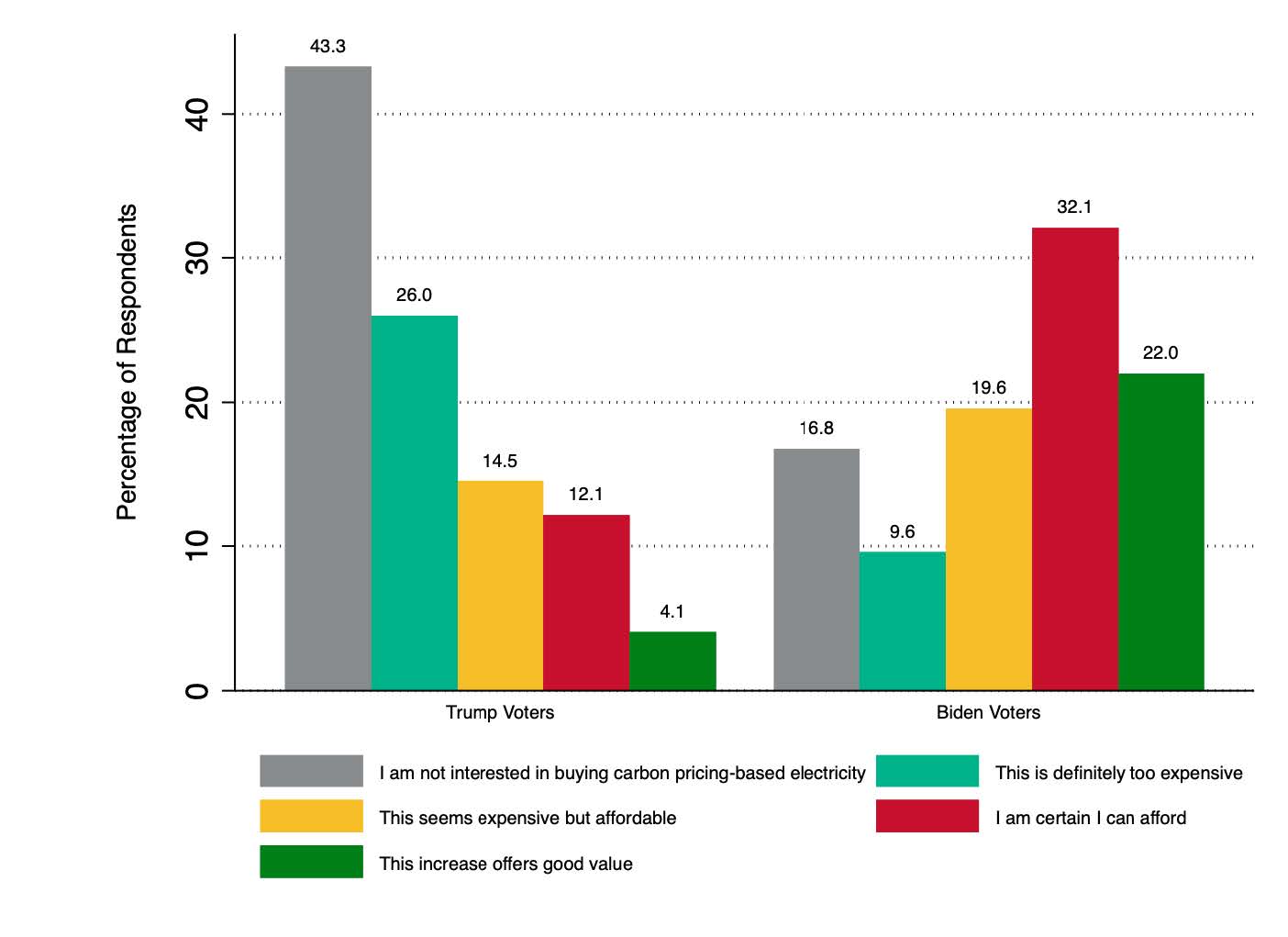Climate Change and Carbon Management: Has the US Transcended Partisanship?
As scientific evidence quantified the increased rate of climate change in the last 50 years, this poignant topic pushed to the forefront of political policy and subsequently emerged as a source of partisan dissent in the U.S. Original questions pertaining to the validity of climate change are no longer under scrutiny, but instead transitioned to what can be done to mitigate climate change.
At the onset of the 2020 presidential election the Hobby School of Public Affairs at the University of Houston and UH Energy conducted a survey to assess public attitudes toward climate change and support for policies aimed at emissions reduction, as well as respondents’ willingness to pay for low-carbon electricity and fuel. One thousand individuals aged 18 or older in all 50 states and the District of Columbia participated in the survey, with an additional 500 Texas residents surveyed for a cumulative 1,500 respondents.
The study reveals where voters aligned and diverged across party lines, acting as a starting point toward understanding what constituents want, what they value, and how to find a navigable way forward. Both Biden and Trump voters are concerned with climate change and support the adoption of carbon management, which presents a timely opportunity for bipartisanship on climate change mitigation and emissions reduction. Our findings also reveal that public support can accelerate the pace of policy transition and assure energy producers that the cost of methane abatement will be shared by consumers as well.
Findings show bipartisan support for capping methane emissions – a potent greenhouse gas – for example, as well as support across party lines for carbon management to mitigate climate change. The willingness to pay for methane abatement amongst most Trump voters and an overwhelming majority of Biden voters suggest an avenue for bipartisanship. The bipartisan support for the adoption of carbon management is a reflection of how much the U.S. has moved on the issue of emissions reduction and addressing climate change.
But a palpable lack of understanding regarding deployed emissions reduction tools and policy mechanisms, such as emissions trading systems, cap and trade and carbon dividends, appears widespread across all voters. A common pain point for voters is the associated cost of the energy transition. Although Trump voters expressed greater levels of disinterest in low-carbon alternatives compared to Biden voters, the share of those not interested declines by nearly half when voters are informed about the cost of transition, irrespective of the magnitude of the increase.
Media Release
Survey Indicates Bipartisan Support for Methane Emissions Regulation
Both Trump and Biden Voters Support Climate Change Policy at a Low Cost to Them, so Methane Emission Regulation May be a ‘Low-Hanging Fruit’ to Start.
NICOLE JOHNSON | MAY 18, 2021
Key Themese
These key themes emerged from survey responses:
- A majority of respondents believe that climate change is happening, including 58% of Trump voters. However, among these Trump voters who believe in climate change, a majority do not believe climate change is caused by human activity.
- More than two-thirds of Biden voters and a majority of Trump voters hold governments of developing and developed countries responsible for climate change. Biden voters were two to three times more likely to attribute responsibility to multiple stakeholders, including governments of developed and developing nations, the energy industry and individual behavior, than Trump voters.
- While 57% of Biden voters agreed that oil and gas companies could remain profitable and create new jobs if they invest in carbon management, only 26% of Trump voters agreed. However, the largest share of Trump voters (28%) neither agreed nor disagreed.
- More than three-fifths of Biden voters said that the government should fund and support research and development if a price on carbon were introduced in the US, whereas 25% of Trump voters agreed. A third of Trump voters said that the government should use the revenue from a carbon price to reduce the deficit or grant a rebate to taxpayers.
- Nearly three-quarters of Trump voters support expanding the country’s pipeline network for natural gas projects. Support proved significantly lower among Biden voters (22%), though 33% were neither opposed nor supportive, suggesting room for partisan agreement.
- Nine in ten Biden voters agreed that oil and gas companies should adopt carbon management technologies, compared to about 45% of Trump voters. Again, a number of Trump voters neither agreed nor disagreed (26%).
- More Trump voters than Biden voters were not interested in carbon-neutral fuels (81% vs. 40%), and few voters thought an increase of $1.70 per gallon offered good value for carbon-neutral fuel. Most Trump voters expressed disinterest in owning an electric vehicle.
- More than twice as many Trump voters relative to Biden voters (74% vs. 32%) declined to pay any amount for solely renewable energy for their homes. An estimated $250 increase per month on electric bills for renewable energy was deemed too expensive by a majority of both Trump and Biden voters. A larger share of Biden voters thought the increase was expensive but affordable.
- Most voters expressed disinterest in paying for natural gas-based electricity produced without venting and flaring. However, 24% of Trump voters and 34% of Biden voters said that they could certainly afford a $5 increase in their monthly electricity bill for this low carbon alternative.
- Twice as many Trump voters as Biden voters declined to pay more for electricity produced with a $40 per ton tax on carbon emissions. While a third of Biden voters said they could afford a $20 increase in their monthly electricity to pay for the tax on carbon emissions, only 12% of Trump voters said they could afford it. Five times as many Biden voters said that a $20 increase offers good value for a carbon tax.
Principal Investigators
Gail Buttorff, Co-Director, Survey Research Institute and Assistant Instructional Professor, Hobby School of Public Affairs
Francisco Cantú, Co-Director, Survey Research Institute and Associate Professor, Department of Political Science
Ramanan Krishnamoorti, Chief Energy Officer, UH Energy and Professor of Chemical and Biomolecular Engineering, Petroleum Engineering and Chemistry, UH Energy
Pablo M. Pinto, Director, Center for Public Policy and Associate Professor, Hobby School of Public Affairs
Researchers
Aparajita Datta, Research Scholar, UH Energy and PhD Student, Department of Political Science
Yewande O. Olapade, Post-Doctoral Fellow, Hobby School of Public Affairs
Acknowledgments
The research team would like to thank our colleagues at the Hobby School of Public Affairs, UH Energy, UH Marketing and Communications, and the Center for Carbon Management in Energy for supporting and actively engaging in the study. Their valuable contributions and feedback are greatly appreciated.
Key Figures
Willingness to Pay for Carbon-Neutral Fuel: How much more are you willing to pay for a carbon-neutral fuel per gallon?
 Note: Does not include six respondents who skipped the question. N=1,118.
Note: Does not include six respondents who skipped the question. N=1,118.Willingness to pay for natural gas-based electricity produced without venting and flaring: $5 increase in monthly electricity bill for natural gas-based electricity produced without venting and flaring
 Note: By random assignment, only about half of the respondents were asked to answer
this question. Of the 1,124 who responded they would vote for Joe Biden or Donald
Trump, 555 were asked this question, and no respondent skipped. N=555.
Note: By random assignment, only about half of the respondents were asked to answer
this question. Of the 1,124 who responded they would vote for Joe Biden or Donald
Trump, 555 were asked this question, and no respondent skipped. N=555.Willingness to pay electricity produced with a carbon tax: $20 increase in monthly electricity bill from $40 carbon tax
 Note: By random assignment, only about half of the respondents were asked to answer
this question. Of the 1,124 who responded they would vote for Joe Biden or Donald
Trump, 569 were asked this question, and no respondent skipped. N=569.
Note: By random assignment, only about half of the respondents were asked to answer
this question. Of the 1,124 who responded they would vote for Joe Biden or Donald
Trump, 569 were asked this question, and no respondent skipped. N=569.